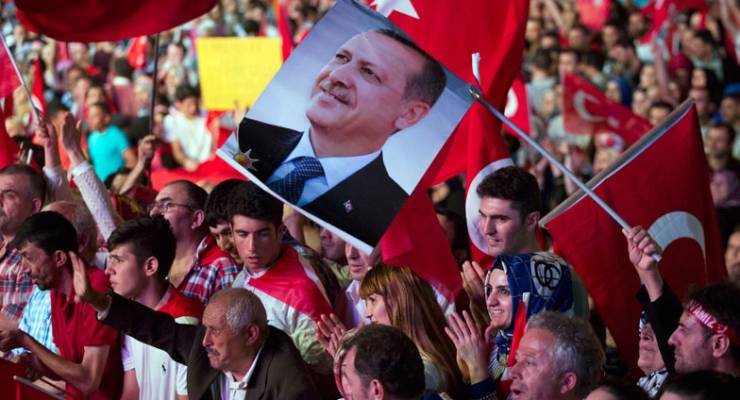
Turkey is going through a period of potentially divisive transition. Its political and religious identity is up for grabs. And its substantial diaspora communities — in Germany, North America and Australia, among other places — are not immune.
The coup has been blamed on followers Fethullah Gulen — a Pennsylvania-based imam and businessman who has for years rivalled Erdogan for influence over the style and shape of Turkey’s democratic Islamism. It’s a struggle that reaches well beyond Turkey’s shores, even to Australia, where the Turkish government provides imams to Turkish mosques.
In Australia, a large number of mosques are managed by Turkish communities. These include not only established metropolitan mosques across Sydney and Melbourne but also in regional NSW and Queensland.
[Erdogan’s links with Islamic State under pressure]
The Diyanet (Turkish Ministry of Religion) provides imams to most of these mosques and pays their wages. This gives Turkish mosques a huge financial advantage over their cash-strapped equivalents from other ethnic groups. However, few Diyanet imams stay in Australia for any length of time beyond a few years.
But also having a strong presence in Turkish communities are the secular Gulen schools and university faculties. The Gulen movement (known as Hizmet or “social service”) is believed to have links with independent non-denominational schools in Sydney and Melbourne, which are popular with Turkish parents. In addition to this, the movement has entered into arrangements with universities in NSW and Victoria.
Gulen is a former state imam and Islamist. But he is also a committed democrat who rose to prominence through his sermons in state mosques. He fled to the United States in 1999 after being accused in Turkey of Islamic extremism.
Gulen and Erdogan were, for a time, allies. But in recent years, their views on Turkish Islamism have become clashed. Three years ago, the leaking of documents exposing the Turkish government’s corruption was blamed on Gulen’s supporters. Since then, the government has taken over several media outlets and educational institutions linked to Gulen in Turkey. And yesterday, Turkey’s prime minister Binali Yildirim sent the United States a request to extradite Gulen, who Yildrim called a “terrorist chief”, over his suspected role in the coup.
[Australian allies of Turkish cleric may have to choose sides]
Recep Tayyip Erdogan is very popular in Turkey — and his popularity has increased after the coup. A Istanbul-based political science academic and expert on Turkey’s disaspora, who asked Crikey not to name him given the increasingly dangerous situation for critics of Erdogan in Turkey, said the crowds supporting Erdogan over the weekend reflected “all the colours in this alliance: Islamists, conservative nationalists, followers of various Sufi orders, extreme nationalists … all are now worshipping Erdogan.”
The academic thinks from now on, criticising Erdogan will mean siding with the failed coup, and against the will of the people.
In Turkey’s diaspora, the divisions mirror those in Turkey. And tensions are rising. In Germany, supporters of Erdogan attacked a school associated with Gulen in the wake of the failed coup. And in Colorado, those in the local Gulen movement say they have also been made targeted by supporters of Erdogan.
In Australia, suspicions about Gulen’s influence have generally been limited to more paranoid sources. In the US, querying Gulen lobbying activities has been a much more mainstream affair.
Given the large, perhaps disproportional and largely ignored influence Turkish religious institutions have among Australian Muslim groups, relations between pro- and anti-Gulen forces will be something worth keeping an eye on.








Excellent stuff. I feel significantly better informed after reading this.
Thanks Irfan.
Indeed: a really useful article.
Irfan, me three! Thank you.